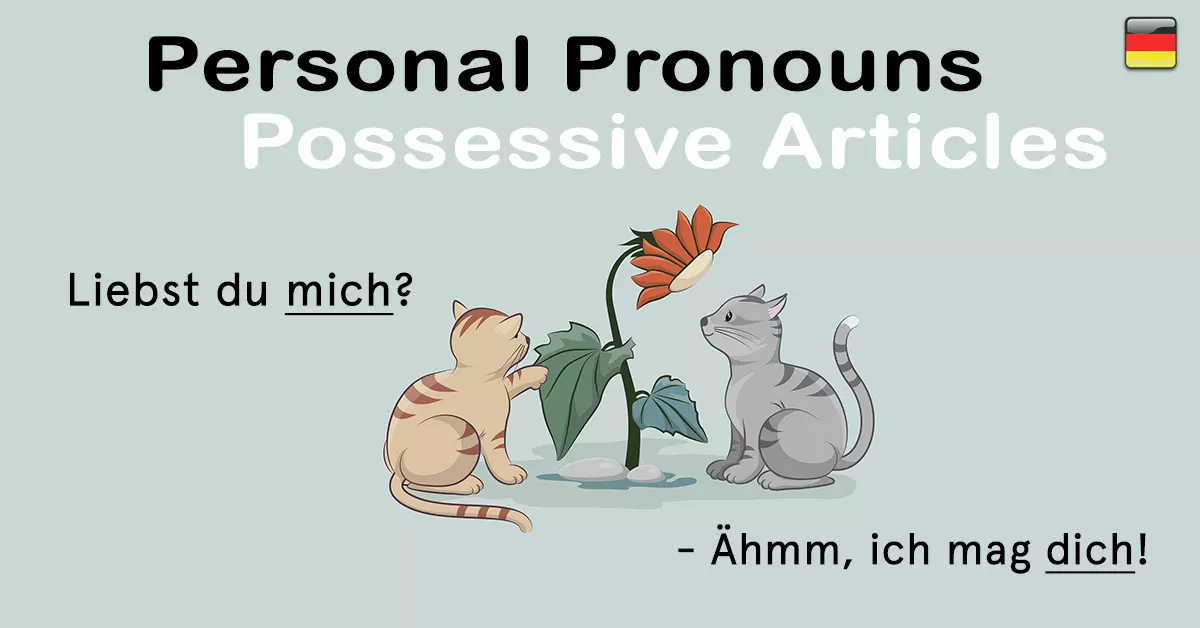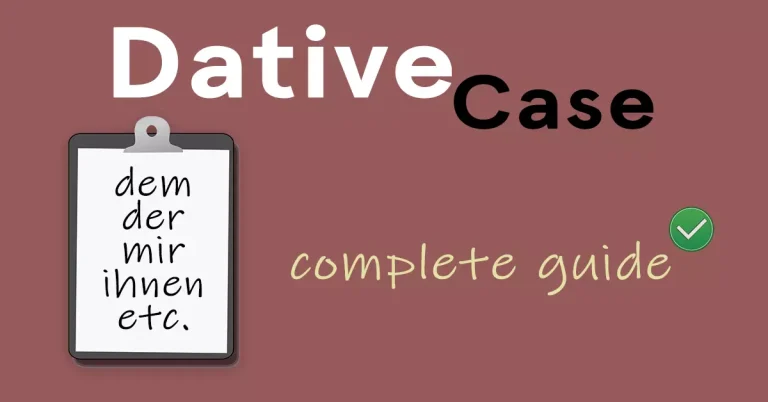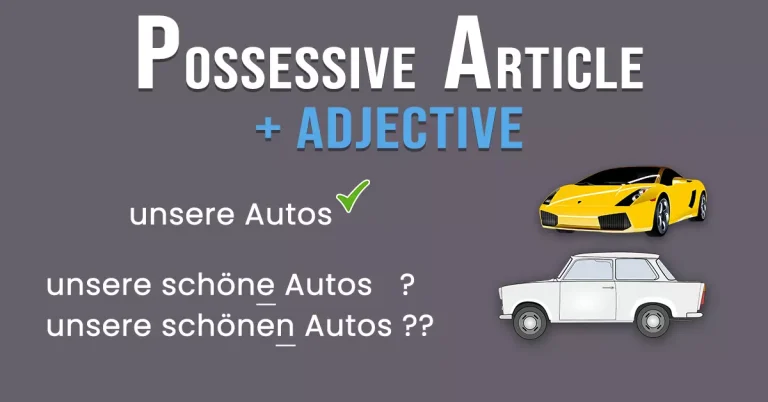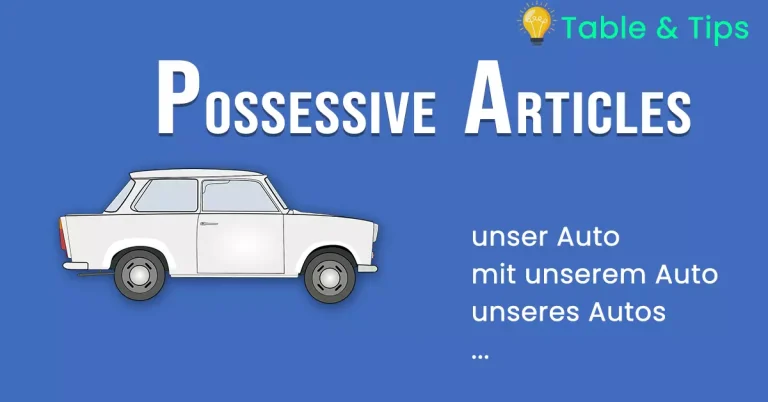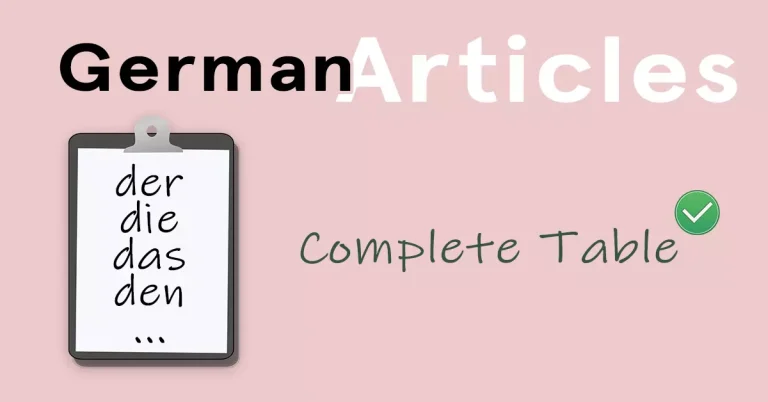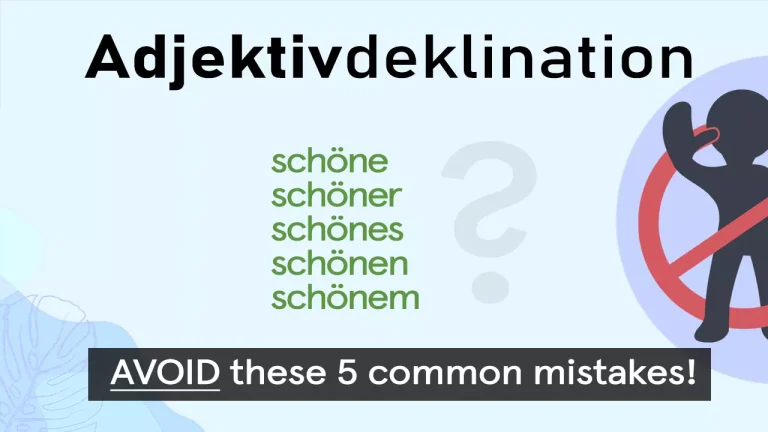The German personal pronouns can be confusing when you’re first starting to learn the language. This is the complete table and some tips for personal pronouns and the possessive articles.
| Nominativ | Akkusativ | Dativ | Possessivartikel |
| ich | mich | mir | mein, meine … |
| du | dich | dir | dein, deine … |
| er/sie/es | ihn/sie/es | ihm/ihr/ihm | sein, seine … ihr, ihre … sein, seine … |
| wir | uns | uns | unser, unsere … |
| ihr | euch | euch | euer, eure … |
| sie/Sie | sie/Sie | ihnen/Ihnen | ihr, ihre … – Ihr, Ihre … |
Some Tips to avoid frequent mistakes:
- All 3 instances of “sie” (including the formal capitalized “Sie) as well as “es” don’t change for the accusative.
- The third person singular endings are the same as the definite article endings: der/er, den/ihn, dem/ihm, die/sie etc.
- “Uns” and “euch” are both accusative and dative forms.
- 3rd person singular “sie” ► “ihr” in the dative whereas third person plural “sie/Sie” ► “ihnen/Ihnen”!
- The possessive articles need be declined just like articles: mein Hund, meinen Hund, eure Katze, eurer Katze etc.
Examples:
| Ich heiße Alexander Müller. | Nominativ |
| Aber meine Freunde nennen mich Alex. | Akkusativ |
| Sie helfen mir immer, wenn ich Hilfe brauche. | Dativ |
| Sie gehen zum Beispiel oft mit meinem Hund spazieren. | Possessivartikel (dative case) |
Download section
Here you can find downloadable bonus material such as PDF files for this topic.

For DMM members only. You can sign up for free or make a voluntary monthly donation.
Exercises
Test your knowledge with exercises on this topic!

For DMM members only. You can sign up for free or make a voluntary monthly donation.
